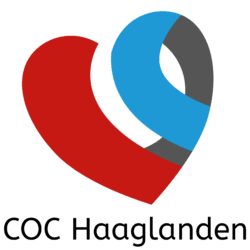Pink council debate in Midden-Delfland
What is needed to create a good living environment in Midden-Delfland for lesbian women, gay men, bisexuals, transgenders and people with an intersex condition? This is what participants in the Pink Council debate want to investigate over the next four years.
Midden-Delfland is an open municipality where lesbian women, gay men, bisexuals, transgenders and people with an intersex condition (LGBTI) can feel safe. That explains Ed Roeling of My Party and Desiree Langeveld (CDA) agrees with him. Johan Meijdam (PvdA) promises to actively keep the LGBTI subject on the agenda and sees something in the municipality to register as a 'Rainbow city'. Rainbow cities receive a subsidy from the government to promote LGBTI acceptance in the municipality. Sonja Smit of OGP wants to know more about the 'community within the community' and wants to find out what is needed. Roger Vieira of D66 pledges to commit himself to guest lectures on sexual and gender diversity in schools and to contacts with sports clubs, and Roy Ringeling of the ChristenUnie also thinks this is a good idea. Wendy Renzen of the VVD is in favor of more cooperation with COC Haaglanden. These are the proceeds of the Pink Council debate that COC Haaglanden is organizing together with DWH on March 6 in Midden-Delfland.
Education and Outreach
The seven participating politicians have different views on what Midden-Delfland does or should do for LGBTI residents. For example, Meijdam considers it important that specialized information officers come to schools to give guest lectures on sexual and gender diversity. 'Not only in secondary education, but also in primary schools. My son's school has a gender child. That's not a problem now, but as they get older, it could be. You have to supervise that properly.' The CDA, the CU and My Party do not immediately want to make money available for this. People in the room also think differently. One thinks that schools can handle the subject well in biology class, another finds that young people can struggle with their sexual orientation and that they can be very lonely in an unresponsive environment. Renzen's story illustrates that this environment is indeed not receptive. 'My daughters play football. When I asked them if girls in the team ever fall in love with girls, or if the conversation was about it, they reacted very negatively. That's not how I raised them at all!'
Dear resident
The statement 'The municipality uses the form of address 'dear resident' in letters because of gender inclusivity', as in other places in society, evokes divergent reactions. Smit (OGP) thinks it's a good idea: 'Everyone understands it, it is easy to implement, in short, little effort, great pleasure.' But Roeling (MP) thinks that then you avoid the discussion. 'I understand that it is practically feasible, but there is more to it than that. We struggle with gender inclusivity. People can indicate how they want to be addressed.' The audience commented that institutions sometimes take a long time to assign the correct gender to their addressees. 'I studied mechanical engineering', says a woman. 'Before the university replaced 'dear sir' with 'dear madam', I was years later.' Renzen adds: 'Not all people feel clearly male or female. With 'dear resident' as the form of address, nobody needs to feel hurt.'
Signals
As the debate progresses, the panelists increasingly discover that little is known about LGBTI people in the municipality. 'I am a mother of growing children, and I don't think it is alive', says Langeveld (CDA). 'We don't get any signals from LGBTI people that they don't feel safe.' But the municipality can do more, says Vieira. 'Money is available for initiatives from society. We can make it clear that that pot is also available for this target group.' Smit adds: 'What do we actually know about the LGBTI people in this municipality? The national monitor does not show that. We need to map it out better.' But whether LGBTI people feel comfortable or not has little to do with their environment, says Ringeling (CU). 'Calling for 'gay' says more about the person who does that than about the living environment. Sports associations act against this kind of language. That also happened when the K-word was often used along the fields.' Meijdam understands that there are no signals. 'If you're young and gay and you live in a macho environment, you keep quiet. It is good if the municipality pays attention to this group, and becomes Rainbow City, for example.'


You cannot reply to this post